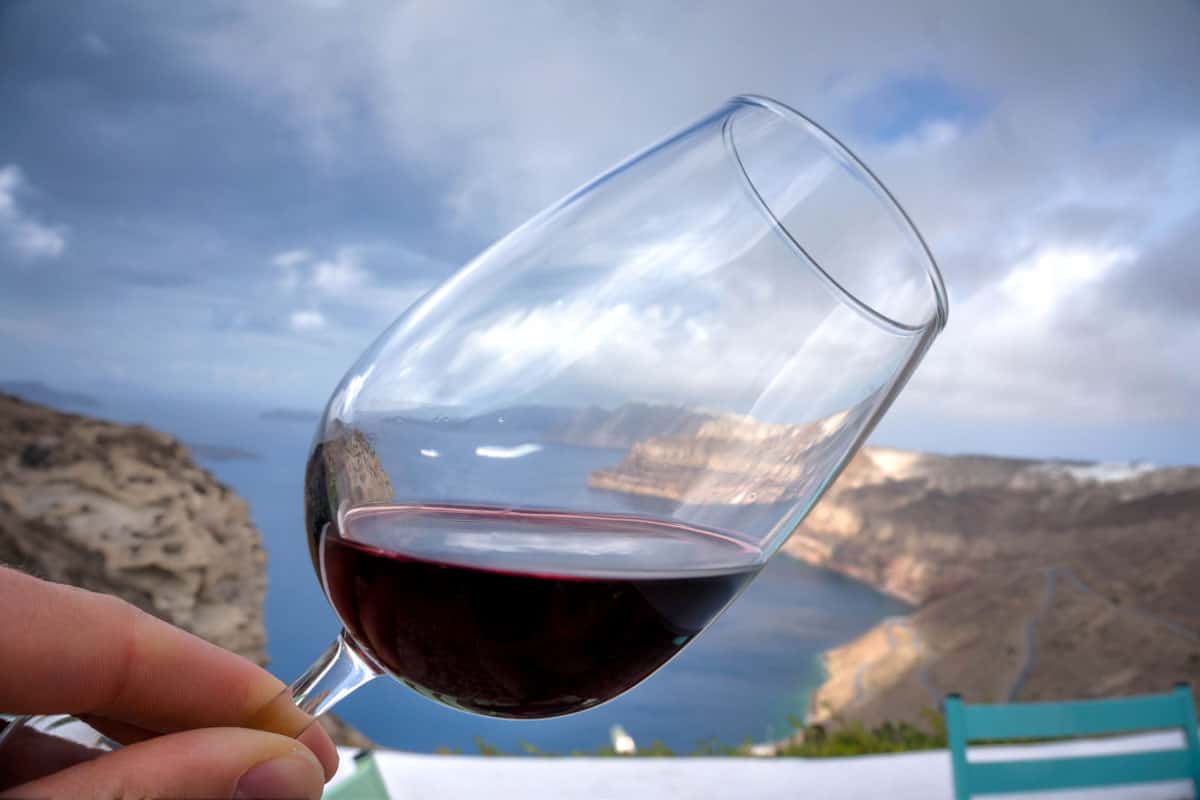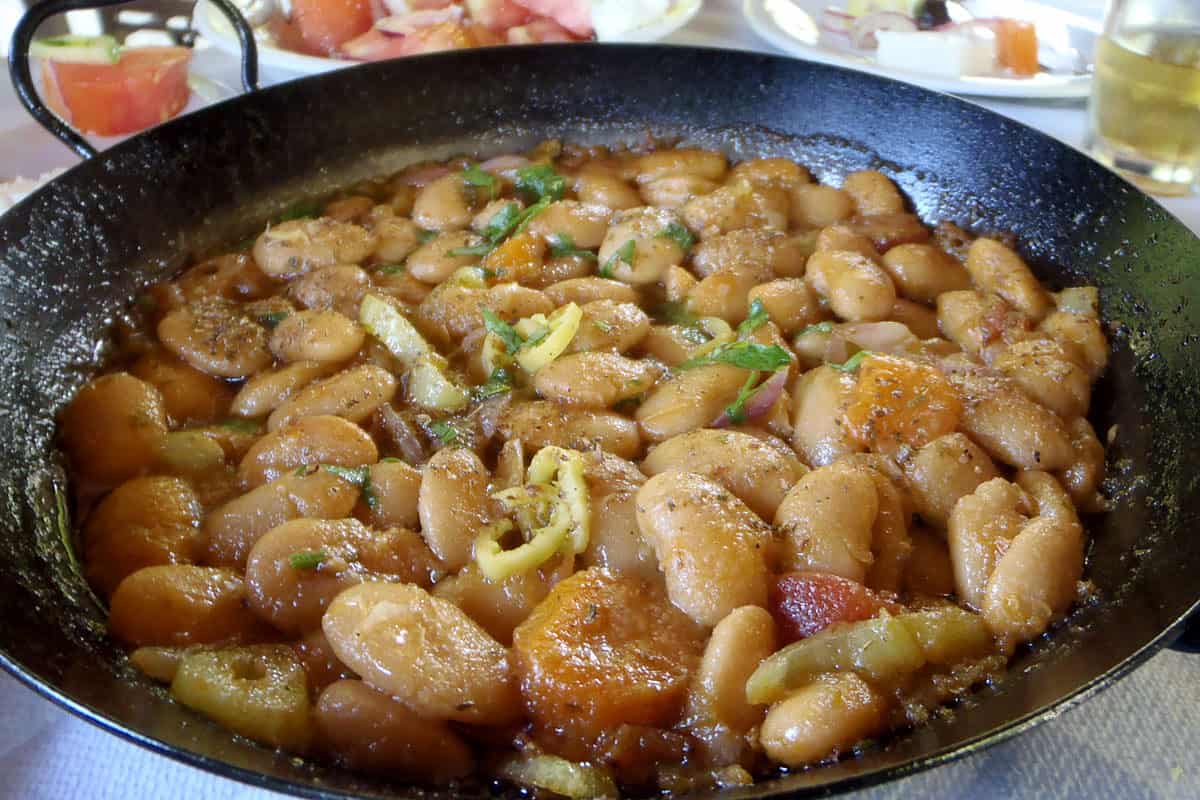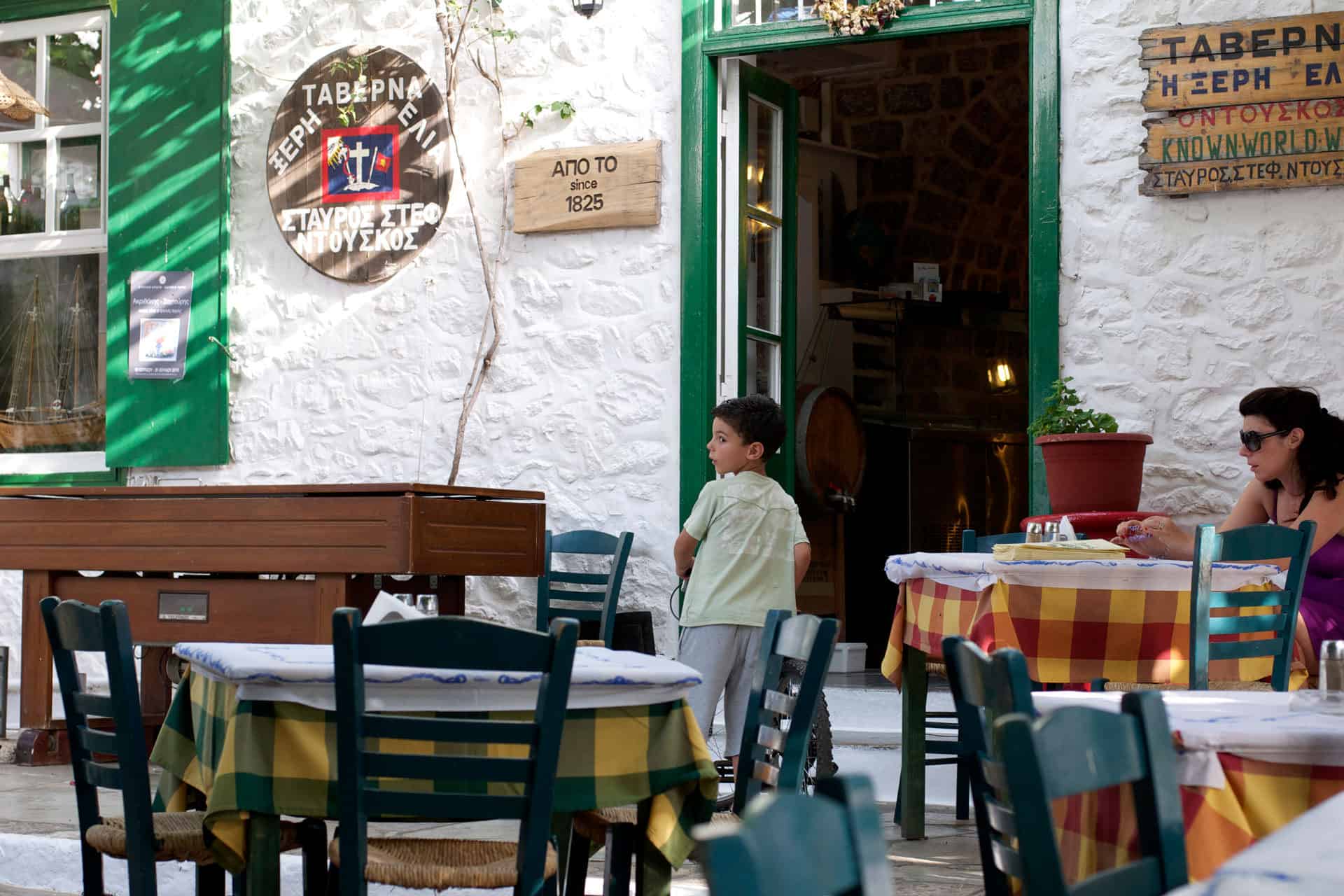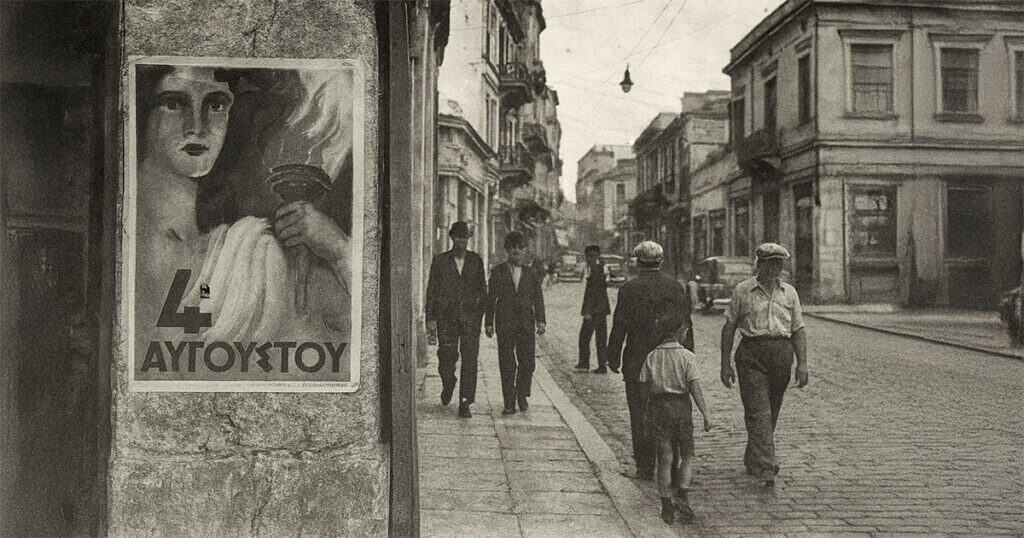Quite rightly, Greece is celebrated for her food, producing some of the tastiest dishes on the planet, and the most beautiful setting. While lacking the cachet of French or Italian food, Greece’s food fundamentals are a great and healthy pleasure.
Greek restaurants and Greek-owned restaurants, abound in the US, and their “Greek food” ranges from rather authentic to completely Americanized, but usually, a Greek restaurant can be counted on to provide good food at reasonable rates. Greece also has a wide and increasing range of Greek restaurants, some priced well beyond local budgets and often enough missing, in my opinion, the fundamentals of Greek food, found in the often humble taverna.
Here perhaps, I draw on my peasant antecedents. Like the majority of Greeks, particularly those abroad, I am two generations removed from the village on all sides. For me, the peasant food of my grandparents still defines Greek food, and here perhaps the Diaspora serves as more of a cocoon for these older dishes, though like Greeks abroad, Greek food abroad adapts to new ingredients.
For me, no experience of Greece captures the country’s true and enduring fundamentals as a simple meal in a taverna – you choose the venue. It could be some meters from the water, and maybe, like Patrick Leigh Fermor in his biography of Greece, Mani, you might set your table in the water, taking your grilled fish and wine chilled in a copper can waist deep in the water. Alternatively, it could be a side street, a stoa, in a busy Athenian or Thessalonikan neighborhood. Or a psistaria in the mountains of Epirus, or a place I know in Livadeia, where the paidakia are piled high on the plate, with a sliced mappa (cabbage) salad as the fiber.
So many tavernas come to mind, the shabby Athenian joints in Petralona or Kallithea, outside my army barracks in Nea Peramos, or, of course, those of my home island, Hydra. I recall Douskos’ Taverna, just a few (highly vertical minutes) walk from our former house, where my late father, John Billinis, would sing a tune with the itinerant guitar player, channeling the spirit of Canadian crooner Leonard Cohen, who loved the place. Years later John’s grandson, also John, would walk up confidently to the guitarist and ask him to play “Stou Thoma,” for his father on his birthday.
Then, of course, there are the sunset delights of Kondylenia Taverna, where the Iliovasilema (sunset, perhaps the most beautiful word in the Greek language) is taken with the fruits of the volcanic Greek land, and the sweet and salty Greek sea. Unforgettable is a weak description.
Greece is blessed with such settings, but let’s get now to the fundamentals, as I walk through a taverna meal my son and I once had, in a grimy stoa in Thessaloniki.
Simple, fresh produce

The Greek salad, that kaleidoscope of color, with the assorted greens of cucumbers, peppers, perhaps some lettuce, and the Byzantine imperial purple of cut red onions, and perhaps, particularly in the north the scarlet red of the Florina Peppers. The tomatoes, oozing seed and juice, with the green at its poles contrasting to the orangish red of the diced globes. Topped with a square of feta, pores often blackened by ground pepper and oregano, the plate is a festival of colors. Crisscrossed with the golden green of extra virgin olive oil and the simplest wine vinegar – or lemon, according to preference – and Greece’s greatest and healthiest contribution to world cuisine is ready to eat. This salad combination is to be found in every house, and in tavernas posh and poor. It is a national reference point uniting an often fractious and factional people.
The water

The American philhellene writer Henry Miller went on for pages about water in Greece. The tables with water, the glasses of water. Greek water is blessed by plenty of minerals as it flows to the earth from the top of granite peaks several thousand feet high, and many a time we would stop the car going up serpentine tracks to an age-old vrisi (drinking fountain) – and drink our fill. Taverns near such sources would offer up such water, but even the bottled stuff in Greece makes the 24 packs from your local store seem like they came out of a wastewater treatment center.
The wine (for me, not my son)

A blond, going perfectly with the salad. In a half-liter cylindrical copper can, ice cold from the fridge. Sulfite-free and likely from a local vineyard not far away, it was the first of many cans. Drawing on my maternal grandfather’s lessons, I dipped the day-old bread in the small wine glass to make krasosoupia (literally wine soup), a tasty hunger suppressant my grandfather’s people had used from time immemorial in the Peloponnesian mountains, and he took it to the mountains of Utah.
Greece has some excellent wines, yet I prefer the homemade hima wine my sophisticated banking colleagues in Athens would eschew, to the 30 Euro boutique wines. Problem is, the homemade Greek wine can only be had there.
The entrée

This is a traditional Greek taverna, so you ate what was on offer. In this case, a kokkinisto (tomato-reddened) lamb with potatoes, or gigantes (navy beans) within an oily tomato sauce with orzo pasta. Bread became soup in the oily plate, when not used to guide the meal onto our forks. Our whole meal was locally sourced and about as “green” as it comes. No GMOs, no processing just the veggies and fruits of a laiki agora (street market) and the simple meals of the oven.
Having a sense of history, both national and familial, I remarked to my son about times I had gone to such places with my late father, his grandfather. Greeks had been eating such food, in such places, for a long time. The simple ingredients filled the stomachs of both rich and poor with simple foods that extended life, accounting, perhaps, for the Greeks’ longevity in spite of all.
For me, these timeless meals will always be Greece, and if such tavernas exist, Greece will always be.








